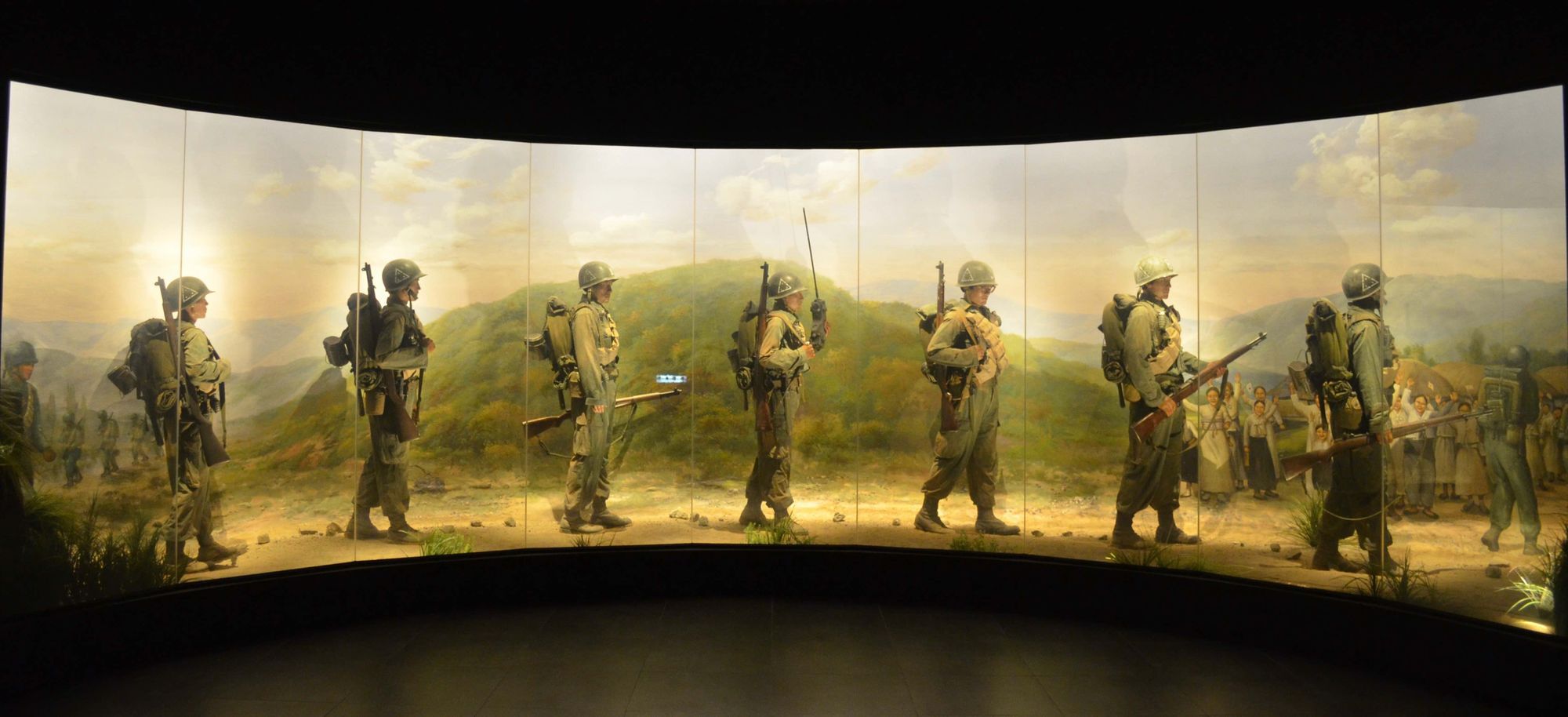I was always told as a little kid to make a wish when you saw the clock sitting at 11:11 whether on the a.m. or the p.m. It was lucky. That was the general idea. If you wished for something at 11:11, it would come true. I honestly don’t know if any of my 11:11 wishes ever came true, seeing that I made so many of various kinds. They probably were quite random and could do without remembering.
But I do sit here on 11/11 of 2016 and it is Veterans Day. Over the past two years I have spent some very valuable time discussing the wars of the passing generations: World War II, Korean War, and Vietnam War. I look at those moments as lucky, and I view them with the greatest sincerity of wishing to remember them long from now. I wish to remember the moments they laughed when telling a wild story, the moments they broke down when they mentioned how another soldier died next to them or for them, or when they just went silent when considering the incalculable cost of war. The incalculable personal loss it deducted not just from that moment in battle, but the deductions it made on the man for the rest of his life—physically, mentally, emotionally.
I’ve kept the recorded interviews. I’ve kept the notes. Two of those men have passed on to the other side. World War II veterans.
I conducted those interviews as part of research for my upcoming novel. I wanted to gather insight on the thoughts, feelings, apprehensions, fears, pains, heartaches of being at war. The “as much as possible” was what I was going for. I needed ideas. I needed experience since I would never have it personally. And they gave it to me. In bits and pieces. In large scale amounts. In other words, some more than others.
My book discusses a part of American history that has been much forgotten: the Korean War. It has been misremembered and forgotten so much that it is accurately and regrettably termed “The Forgotten War.” A moment in time (6-25-1950 to 7-27-1953) that is glossed over in war-related conversation. A thought hardly discussed regarding America’s history. A lesson never mentioned to our children growing up in the education system.

And I’ve heard the pain of that forgetfulness when speaking to those Korean War veterans. The books that I’ve read. The documentaries I’ve watched. But it doesn’t stop there, as many people often do, with the pointing of the finger at everyone else. No, the finger has been pointed at me for as long as I’ve been able to know better than to disregard the sacrifice of men’s lives. I knew nothing about the Korean War before I started this project. The one time I remember hearing it, in anything other than eavesdropped conversation, was an old I Love Lucy episode, and the term was used as the punch line for a joke. The war itself was not being tossed about as a joke, but the reference, the moment, my age, and the live audience laughter, conveyed to me that the Korean War, despite it’s identity as a “war” in phrasing, was nothing to take too seriously.
Now that I look back at what I didn’t know, what I thought, what I know now, and what I think, it is heartbreaking. And so I make my wish on this day that we Americans rightfully celebrate. A day that should make us stop for a moment, even in our current chaotic political strife, and remember those who gave so much. For me personally, it is a day to remember those who gave so much, but received so very little in return. And it is this little something that is much needed for every veteran. The need for acknowledgement. The need for remembering.
That is why I wrote my book. To not just mention the Korean War, but to bring to light the knowledge that there is very little acknowledgement. To bring to light the understanding that our military members—our soldiers—need to come home as recognized heroes who have put their lives on the line for our safety, but now even more typically, the safety of others.
So today, on 11/11, I make a wish. That you will remember. That maybe you’ll Google something about the Korean War. That you’ll know some of the things about this war that changed not just the history of America and Korea, but the world.
If you do nothing in particular today for our veterans, do one thing: remember.
Here are a few things you may want to know about the war (so you don’t have to Google it):
- It was the first time the United Nations was used
- It was a direct fight against Communism (Soviet Russia and Communist China)
- It was the first major fight between the Cold War powers
- It was the first war to utilize a desegregated US military (1948 Executive Order by Truman)
- This war ensured the Marines remained as part of the US military, as it was near to being officially removed from the military branch
- Douglas MacArthur was fired during the Korean War
- It was the first war America was involved in that we didn’t win (Armistice Agreement)